As the Good Hotel Guide 2016 Great Britain & Ireland is released, we bring you its editor’s pick of the best historic house hotels in Britain.
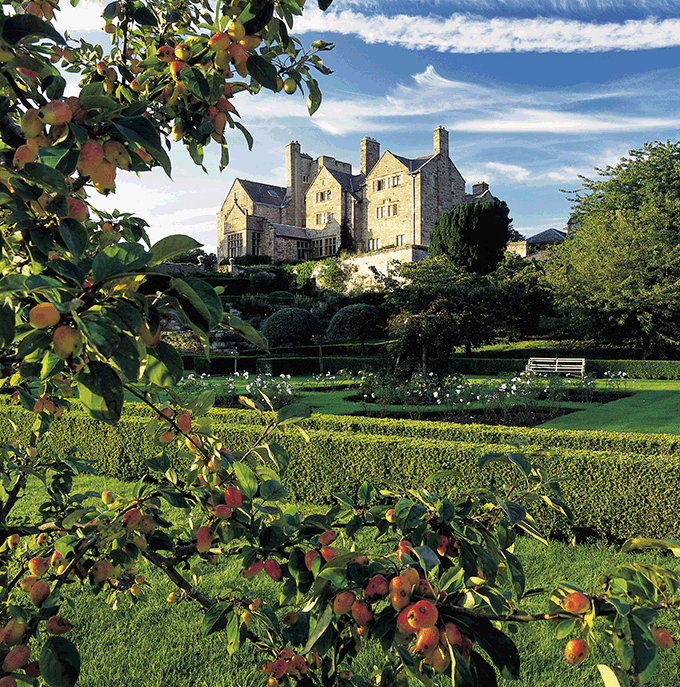
With a history stretching back over 600 years, this Grade I listed manor is run by Historic House Hotels for the National Trust. The two main storeys, dating from the early 1600s, comprise an entrance hall with the Drawing Room above. Each has mullioned windows, oak panelling, two fireplaces, antique furniture and paintings. The bedrooms, too, are furnished with antiques. Within 200 acres of parkland, the restored gardens include a 17th-century parterre, lily ponds and a rockery with cascade.

GRAVETYE MANOR, EAST GRINSTEAD
Look up as you approach the entrance from the formal garden: the initials ‘R’ and ‘K’ carved in stone recall the iron master Richard Infield, who built the Elizabethan mansion for his bride, Katharine Compton, amid woodland, farmland and lakes. Inside, the carved cipher ‘WR’ denotes the great horticulturalist William Robinson, who lived here until his death in 1935 and laid out the gardens. There are huge fireplaces, oak panelling, antiques and oil paintings – and from chef George Blogg, confident modern cooking.
Begun as a single-storey dwelling in 1695 by one Sir Abstrupus Danby (the vicar who christened him being the worse for drink), this house appears today as a castle, transformed in the early 1800s, at the height of the Romantic era, with the addition of a west wing, tower, turrets and battlements. It is run as a luxury hotel by Mark and Felicity Cunliffe-Lister, Baron and Baroness Masham. In the park there are lakes, Druid seats and follies.
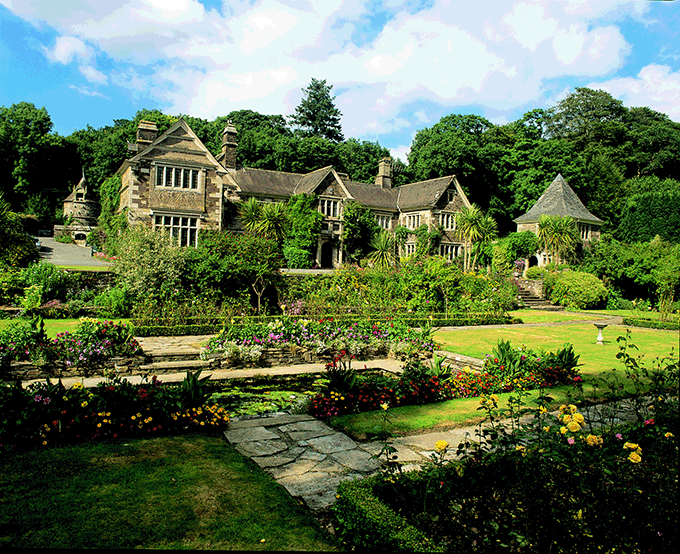
This Jacobean house, said to be haunted by a white lady and to have secret tunnels beneath, has an eventful history. It was once the ancestral home of the Rev Sabine Baring-Gould (d 1924), rector, writer, hagiographer, antiquarian, folklorist. He transformed the manor, penned ‘Onward Christian Soldiers’ and is buried in the churchyard. Within there are fireplaces, dark panelling, leaded windows, family portraits. The gardens were originally designed by Walter Sorel with advice from Gertrude Jekyll.
The Francis family’s unique hotel occupies a fortress in the shape of an eight-pointed star. Built in 1593 against possible Spanish invaders, its vantage on Garrison Hill affords wonderful views across the Isles of Scilly. The stone-walled Dungeon Bar is hung with seascapes and firearms. A Guard Room on the ramparts has harbour views from a ‘tiny’ window. There is stellar cooking in the ‘atmospheric’, beamed and candlelit dining room, formerly the officers’ mess.
PLUMBER MANOR, STURMINSTER NEWTON
Far from the madding crowd, close to the town where Thomas Hardy spent the happiest years of his married life, this Jacobean stone mansion with leaded, mullioned windows has been in the Prideaux-Brune family since it was built in the early 1600s. Inside there are flagstone floors, dozing labradors, family portraits, and, in the first-floor gallery, a grand piano and oversized sofa. The River Develish runs through the garden. It’s old-fashioned in all the best ways.
A long drive leads to Stuart and Susannah Macpherson’s Georgian house, built for Sir George Steuart Mackenzie, 7th Baronet of Coul, around an octagonal dining-room. The Macphersons have refurbished a once-compromised building and reinstated original features. A painting over the dining-room fireplace depicts a visit by Queen Victoria in 1888, when she was entertained with a small Highland Gathering. A Douglas fir in the grounds was planted by Scottish botanist David Douglas himself.
This mansion, built in or before 1632, passed to the MacNamara family, who won it at a cards game and stayed until 1847. It owes its Edwardian country house appearance to Clough Williams Ellis, who transformed it in 1912. It is believed to stand on the site of the White Palace, home of the first Welsh Parliament in the 6th century. Formerly owned by Sir Bernard Ashley, husband of designer Laura Ashley, it houses his art collection, including works by James McNeil Whistler and Augustus John.
In 400 acres of woodland, lakes and gardens, this mansion has been in the same family since it was built in 1704. It was rebuilt and extended in the 1870s by John Madden, taking inspiration from Italian palaces, with a grand Ionic portico a ‘piano nobile’. Ninth-generation owners Fred and Joanna Madden run their home as a welcoming hotel. It is filled with antiques, art works, books, abundant squashy sofas and family memorabilia.
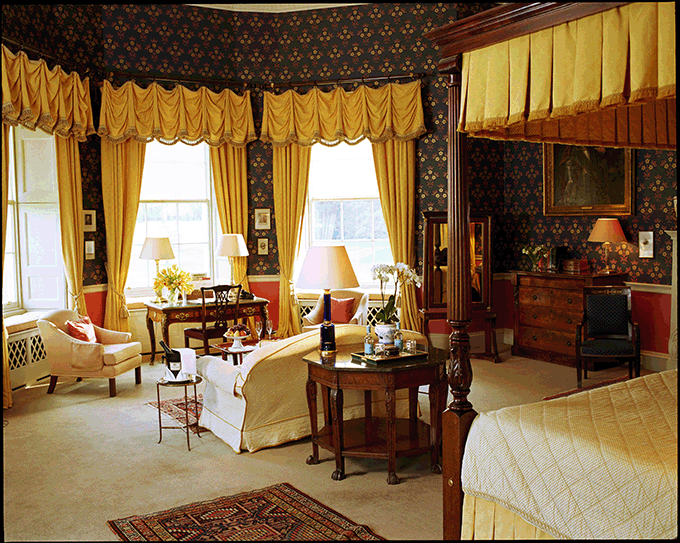
The exiled King Louis XVIII of France, with Queen Marie-Josephine, once held court at this palatial mansion, today run by Historic House Hotels for the National Trust. Architecturally it has evolved since the 1600s, with a Baroque Great Hall dating from around 1740, and a carved Jacobean staircase. Georgian interiors are ‘sumptuous’, with brocaded sofas, marble fireplaces, rococo ceilings and friezes.
For more inspiring places to stay see The Good Hotel Guide 2016: Great Britain & Ireland, priced £18 (incl p&p) from The Good Hotel Guide.
Download BRITAIN Magazine to your mobile today

 No mobile device? Purchase directly on Zinio for your desktop!
No mobile device? Purchase directly on Zinio for your desktop!

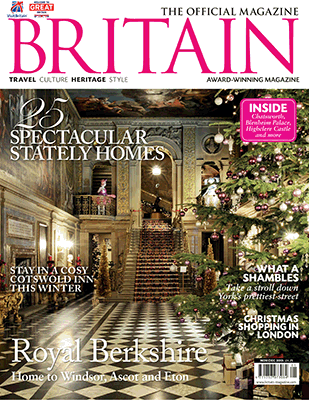


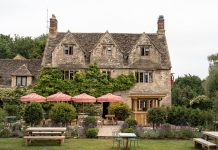

 © 2024
© 2024